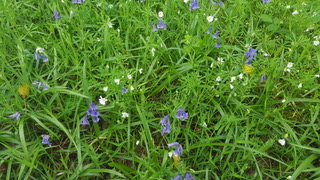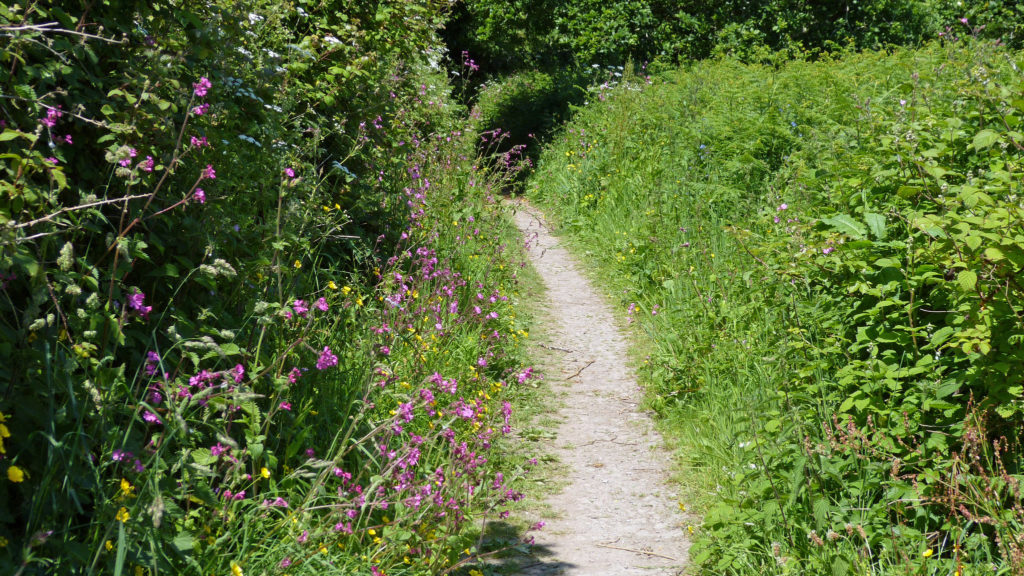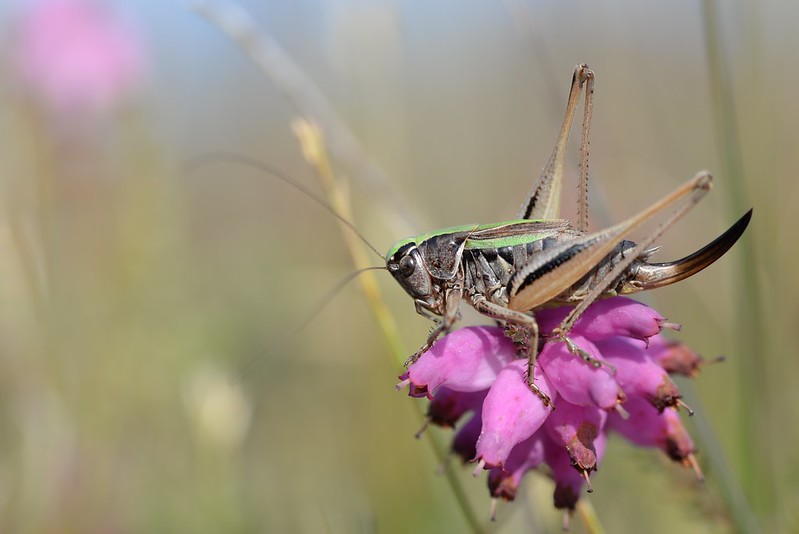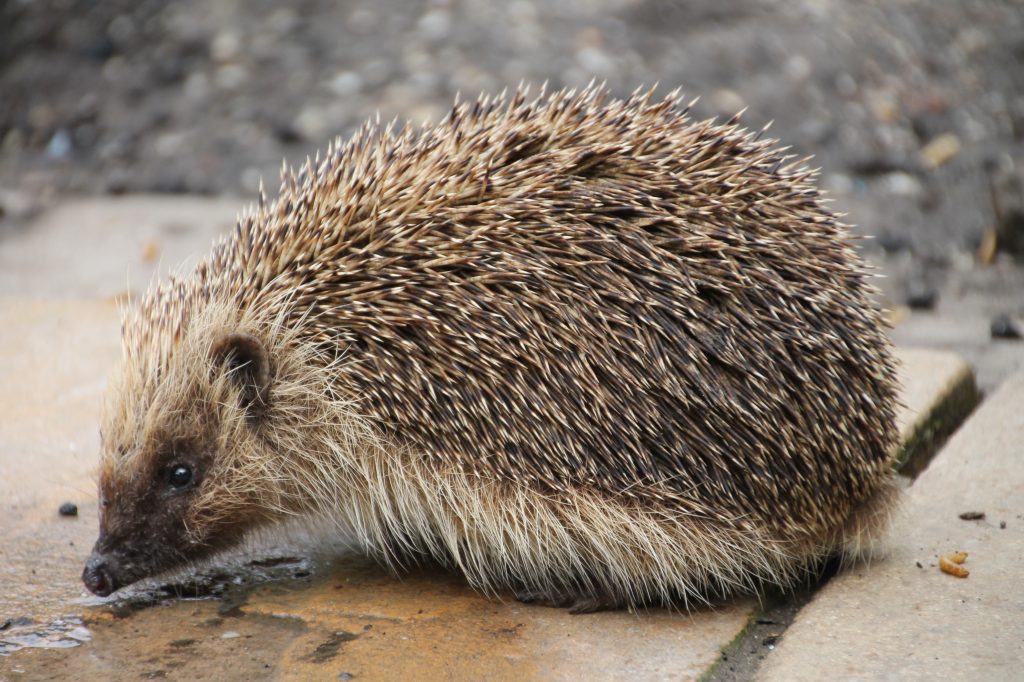iNEWS reports people are being urged to head outside to count stars on a clear night this week, as part of a national campaign to measure light pollution levels across the country. Last year’s survey revealed more than 60 per cent of participants lived with light pollution. The countryside charity CPRE – formerly known as the Campaign to Protect Rural England – wants to find out if the pandemic has improved the situation with this year’s count, which runs from 6-14 February.
All posts by Heather
London Resort: Wildlife charities unite against theme park
The BBC reports three conservation charities have come together to object against plans for a theme park on a “nationally important” wildlife site in Kent. The London Resort is currently going through the planning application process and, if approved, work could start on Swanscombe’s marshes in 2022. Kent Wildlife Trust, Buglife and the RSPB want it to be declared a Site of Special Scientific Interest (SSSI).
Andy Martin, from London Resort, said it planned to “enhance” the habitat. If approved, the brownfield site would be transformed into the first major theme park to be built in Europe in nearly 30 years. The 535-acre site would have two theme parks, a water park, hotels, shopping centres and entertainment venues, and is ultimately expected to support 17,000 jobs.
Sandringham welcomes efforts to bring back Britain’s biggest bird of prey
The Daily Telegraph exclusively reports wandering through the Sandringham Estate, one may hope to spot a skylark in full song – or perhaps even a member of the Royal Family out for a stroll. Soon, however, tourists are likely to be startled by the sight of the giant wings and hooked beak of Britain’s largest eagle as the royals welcome the work of local re-wilders hoping to bring them back. Wild Ken Hill – a farm recently taken over by re-wilders working to restore lost nature to Norfolk – is about a 10-minute drive from the royals’ home in the county.
Nature on the doorstep as front gardens bloom again

The Times, Daily Telegraph, and Daily Mail report they have been paved over, concreted and covered with gravel, more noted for their bins and bicycles than their begonias. But after decades of neglect, Britain’s front gardens are greening up. The amount of front garden greenery across the nation has grown by an area seventy times the size of Hyde Park since 2015, according to the Royal Horticultural Society. The gardening charity says the increase in front gardens that have been planted up should bring far-ranging benefits to people’s health and wellbeing, as well as the environment and wildlife.
‘Reservoirs of life’: how hedgerows can help the UK reach net zero in 2050

The Guardian reports one New Year’s Day, ecologist Rob Wolton came up with an unusual resolution – to spend the next 12 months studying a hedge 40 metres from his house in the middle of Devon. He wanted to make a list of every plant, animal and fungus that used it. Why? Because a wildlife-enthusiast friend challenged him to do it during a long car journey.
Government ‘painfully slow’ on protecting environment
BBC News, and Sky News report progress towards protecting the UK’s environment has been “painfully slow”, a government spending watchdog has warned. The Public Accounts Committee pointed out that ministers had first pledged a decade ago to improve the natural environment within a generation. But it complained of serious delays in tackling “critical” issues like air pollution, water quality and wildlife loss.
Traffic noise is making female crickets less picky

Photo by Will Atkins under creative commons
iNews reports traffic noise makes female crickets less picky when choosing a mate, a new study from Anglia Ruskin University suggests, threatening their long-term survival. Male crickets perform courtship songs to attract a female by rubbing their wings together. Females will generally pick the male with the best serenade. But road noise is making it harder for female crickets to distinguish between a top notch song and an off-key performance, the researchers said.
UK crane population hits highest level in 400 years
The Independent, Daily Mail, and iNEWS report the number of cranes inside the UK has reached an all-time high since the species became extinct here 400 years ago, a survey has revealed. The research from 2020 – shared by the Royal Society for the Protection of Birds (RSPB) on Monday – found 64 new pairs living across Britain, which produced 23 chicks, bringing the total UK crane population to more than 200.
Flooding risk rises as UK’s wetlands lost
The Guardian reports this has been another wet winter of big downpours and flooding, but that should come as no surprise. Winters in the UK are turning increasingly wet and climate change predictions point to even wetter winters and record-breaking rainfalls in the future. Flooding from these rains is not inevitable, though. More than 5m homes in England are at risk of flooding, and yet one in 10 new homes are being built in high-risk flood areas. These are largely flood plains, typically flat, low-lying land around rivers that would naturally waterlog like a sponge, creating a mosaic of wetlands that help soak up the water that would flood elsewhere.
Chris Grayling leads Tory drive to protect UK’s declining hedgehog populations

The Independent reports a proposed amendment to delayed Environment Bill would afford UK’s embattled hedgehogs same level of protections as bats and badgers. It would require developers to look for hedgehogs on proposed sites and take action to reduce the impacts on them.
